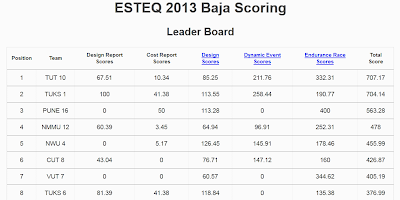written by Anrika Botha
South African Universities are also accelerating their innovative ideas in creating an environment where the students and lecturers have the “luxury” to entertain their ideas and have it come to fruition.
South African Universities are also accelerating their innovative ideas in creating an environment where the students and lecturers have the “luxury” to entertain their ideas and have it come to fruition.
From their web site we read - “Maties move towards entrepreneurial
future
Stellenbosch
University (SU) is now the home of a brand-new business accelerator, known as
LaunchLab, in the centre of its Stellenbosch campus. The LaunchLab, a proud
initiative of Innovus, is the hub of all entrepreneurial activity on the SU
campus. Besides being home to a number of SU spin-out companies, it also houses
student start-up companies and external service provider companies, who will be
on hand to provide mentoring and services to any tenants who require it. The
aim of the LaunchLab is to boost entrepreneurship at the University by providing
networking opportunities, mentoring and affordable rental rates in an
entrepreneur-friendly environment”.
From John Tyczkowski, at alleywatch we learn: Reimagining Entrepreneurship at the Universities
"One
of the latest trends at universities, especially given the on-going economic
malaise in the U.S., has been to create centers for entrepreneurship,
innovation and economic development. Examples include the University of
Florida’s Innovation Square, the
University of New Mexico’s Innovate
ABQ and Arizona State’s SkySong.
The
idea is basically to create a complex of buildings, close to both campus and
downtown, where students can go and work on their ideas and meet with industry
professionals and businesspeople in order to turn those ideas into products and
services. Some plans also include entrepreneurship classes and course credit
for entrepreneurial ventures.
Quite
simply, if you want to drive local and state economic growth, then do it, but
don’t combine it with an entrepreneurial incubator. Students’ own potentially
lucrative ventures are sure to get lost in the shuffle of state and local
interests, and the interests of long-established businesses".
Here
at NWU we agree with John when he says: “An alternative to the live/work/play
model is the incubator model, which in the university environment involves
small-scale deployment of time and resources to ensure quality over quantity”.
There
is, however, another approach that may yet prove its worth. Scott Belair of
Urban Outfitters, thinks students should innovate for a semester. He brings
together students and innovators with the goal of inventing new products and
services and then making them marketable, in the true entrepreneurial spirit. “I
envision a 24-hour campus with hundreds of students,” Belair said in an interview
with the Allentown Morning Call. “A place where the ideas never stop
coming. This is just the beginning. This is the future.”
Saying
John Tyczkowski: “Live/work/play
and incubator models are both established, and they both work, albeit with
their own particular drawbacks. Perhaps it’s time to innovate the way we
innovate, and to rethink how we introduce students to the entrepreneurial world”.
Urban Outfitters' Co-Founder Is Building A College Campus Without Classes, Tests, Or Homework
Now
that’s what I call innovative.















